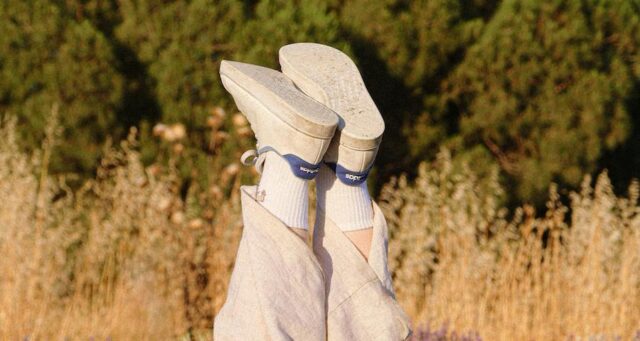
As I type, I can hear the low hum of crickets. In rounds, the noise dims in and out, occasionally accompanied by other pre-dawn inhabitants: the hiss of a possum, the magpie’s sweet song.
In reality, I’m perched indoors post-dinner, but this soundtrack is an apt backdrop as I investigate ethical banking. Banks and bird calls? Not your usual companions. But in the context of this hopeful part of the world, they’re the best of bedfellows.
Interested to hear how others navigate the world? Head to our Life section.
On my growing list of ‘icks’ is the failure of big businesses to take responsibility and make appropriate, significant changes to address the climate crisis. The house is on fire, but someone’s too busy meeting the bottom line to care. Ick ick ick.
Banks are no different. As corporations, they are in it to make money. Ultimately, the goal is to meet shareholder demands by turning a high profit each year and delivering pleasing returns (on top of whopping bonuses to C-suite staff).
And this is why it matters how and where we choose to save. Our paycheques, no matter their size, are not sitting in a siloed personal account, awaiting our need to withdraw, gaining interest and momentum. Instead, my $50 is pooled with yours, along with $500 from the bloke down the road, and on and on it goes. Together, these sums are used to lend and invest.
Lend and invest to build more (bank) wealth, that is. But where does that money go? Most of us have no idea about the million-dollar deals happening at the very top. Is the bank you’re with investing in a more sustainable future, or funding the arms industry, gambling and fossil fuels? As I’ve found out recently, it pays to dig deeper.
Enter ethical banking
The ethical banking approach is responsible and climate change wary, working with the natural world, not against it. Intentionally avoiding unsavoury investments, the focus is on the transition to clean energy, supporting not-for-profits, empowering and funding regular people for housing and investing in sustainability.
Integral to ethical banking is a customer-forward approach, using our money saved as a ‘force for good’. Aligning with our values to confidently and consciously take these paycheques further, it’s customer money used for positive impact.
View this post on Instagram
The Bank Australia difference
Years ago, my friend Maddy urged me to open an account with Bank Australia. A staunch environmentalist, she said she felt understood and secure in her saving, knowing it shared her values and hadplus “great casual-cool customer service,” she noted. “All without investing in yuck stuff like mining and gambling but in good things for humans and nature.”
Now my pay is doing the work in a safe space. Further to Maddy’s points, these are a few of my favourite things about Bank Australia.
They’re customer owned
As a customer-owned bank, Bank Australia is not publicly listed and not beholden to the pressures of annual shareholder payouts (we want more, more, more, they scream almost everywhere else). Everything looks different here. Described as balancing profit with purpose, there’s a meeting of the minds (and money) – obviously working to deliver fair fees and rates, but tangentially taking action where we (the customers) deem important. Plus, grants and loans are offered for the funding of responsible projects, including the Bank Australia impact fund for conservation and reconciliation projects and impact lending for its customers.
They’re B-Corp certified
The conscious wording is not just thrown around here for green-washing effect. With B-Corp certification, Bank Australia is assessed for its standards and practices across the environment, as well as its ethics and social aspects.
View this post on Instagram
They have ambitious net-zero goals
Our government could learn a thing or ten from this target: net zero by 2035. In practice, this goal means conscious funding of projects, including those designed to help reduce emissions, while offering loans that help customers do the same (see: the Clean Energy Home Loan) and offering customers guidance to move to fully electric homes through the BOOM! Power platform.
The Bank Australia impact fund
Intended to ‘put your money where it matters’, the impact fund supports positive-impact projects around the world each year. The more customers, the more power this fund has, as up to four per cent of the annual after-tax profit is committed to the cause. And, as customers, we have a say in where this money goes.
Birdsong on demand
Remember what I said earlier about birds and banking?? You can listen to the sweet sounds of nature wherever you are via Bank Australia’s ‘Sounds of the Conservation Reserve’ tracks, recorded at the reserve in Western Victoria.
I believe true environmental and ethical impact comes from within the community – the grassroots has always made headway. We may be small, but we’re mighty in numbers, particularly when joining forces with a forward-thinking business like Bank Australia. I’m not just an eight-digit account number, fuelling industries and actions I wholeheartedly disagree with via weekly deposits. I’m among many like-minded individuals, pooling our money together to double, triple, ten times our impact where it counts.
Coming up blank? Make the switch to Bank Australia.
This article Money where your morals are: What exactly is ethical banking? appeared first on Fashion Journal.
2025-02-24 04:30:00
#Money #morals #ethical #banking
Source link
















